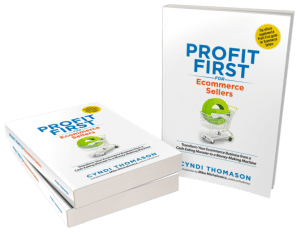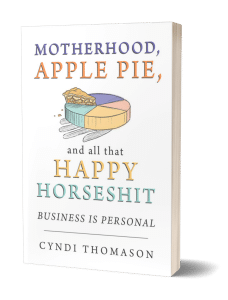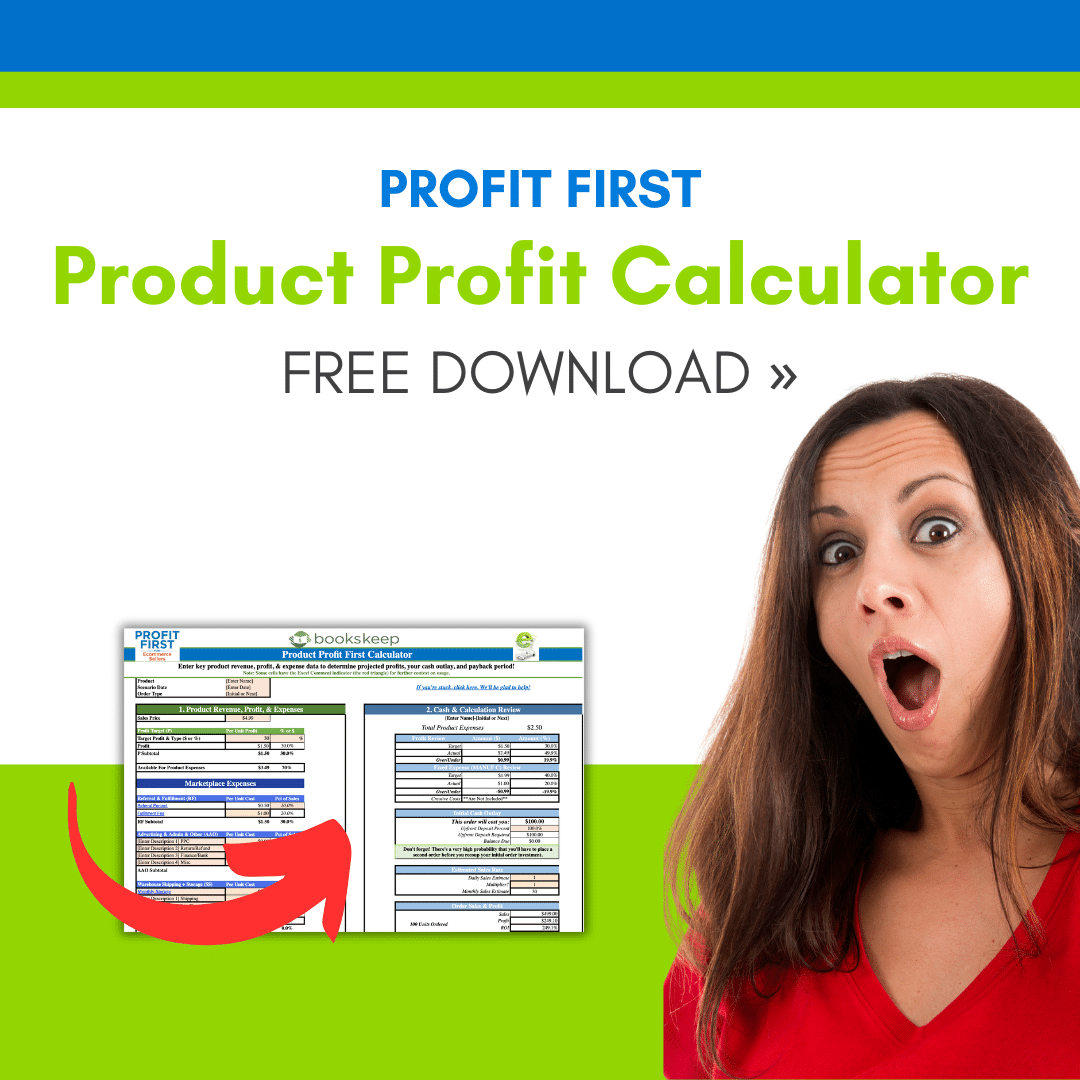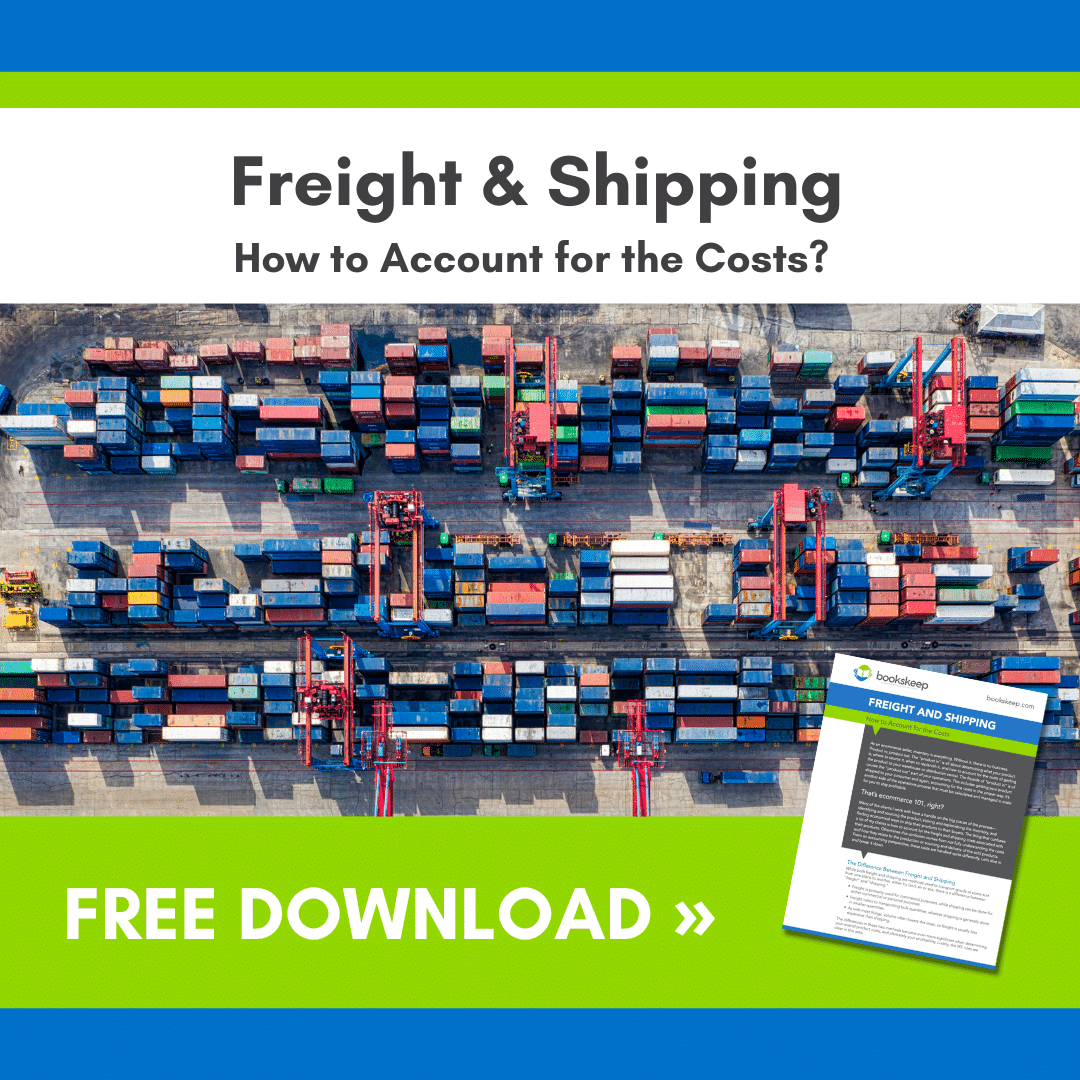
Some things just go together: peanut butter and chocolate, washers and dryers, and ecommerce businesses and credit cards. These little plastic cards have become an essential business tool, in ecommerce especially. In fact, when I talk with clients about profit first, one of the first questions I always get is, “I can still use my credit card, right?” My answer is simply, “If you can be responsible”.
Mike Michalowicz, in the original Profit First book, recommends using debit cards and not credit cards. And while I get his point, I respectfully disagree. My ecommerce clients have reached “Mastery” status when it comes to using credit cards and getting points, and credit cards often allow them to be a more knowledgeable business owner. In addition, debit cards can be lacking from fraud protection when they are connected to a business account. If you have a debit card, be sure to check with your bank to ensure that you are protected if the card is stolen or compromised.
Segregate Your Cards
This is how we make credit cards work for us in ecommerce businesses so we can get those points and ensure we hold ourselves accountable to the Profit First methods. First of all, as with your bank accounts, you want to assign your credit cards a job. You will have a bank account for inventory, so you also want a credit card that is used solely for inventory. The same is true for Operating Expenses. You have an operating expense bank account and an Operating expense credit card.
Some of our long-term clients have gone even further and set up separate bank accounts to monitor advertising, shipping, or licensing fees. If you need those accounts and you pay for advertising, shipping, etc. with a credit card, then set up cards specifically associated with each of those bank accounts.
Segregating your cards in this way gives you a couple of benefits. First and foremost, you can manage your card spending in conjunction with the bank balance that you have available to pay that bill. If you have put $15,000 on your inventory card, you want to ensure you have $15,000 set aside in your inventory bank account to cover this bill.
A second benefit is that you can more easily start to get your hands around your typical spending associated with that activity in your business. Mixing up types of charges, like inventory and operating expenses, for example, makes it hard to see the typical spending for each category. If you work with a bookkeeper, it will also simplify their life to know how to record those charges.
Pay Your Balance Regularly
Another strategy for ensuring that you have access to credit and that you’re not letting your spending on credit cards get out of line is to pay off the balances every week or two weeks when you do your profit allocations. I know using someone else’s money is appealing, and if you’re disciplined and can stay out of borrowing trouble by paying the bill when it’s due, that is fine. However, often what I see are business owners struggling to pay off balances and not monitoring their spending close enough.
Paying down the balance more frequently puts you closer in touch with your spending and the funds available. Making this payment can also help you free up room to charge additional items too, which may eliminate the need to have additional credit cards. If you must have multiple cards because of the volume you’re buying, then make sure you do the mental math to ensure that your bank account is going to cover the bills.
Credit card balances are important to monitor, especially now that interest rates are on the rise. It’s an easy solution to use a credit card when our costs are rising and we haven’t yet adjusted our spending levels or our pricing for our products to keep up with inflation. Don’t let this become a crutch because as interest rises, access to credit will be tightening and getting cheaper loans will become more challenging as well.
If you are relying on credit cards and balances aren’t being paid off monthly, that is a red flag that your business is not performing at a level to support your spending. Get that under control before it gets out of hand. There are not enough points in the world to be worth the anxiety caused by growing debt.
Be Responsible to Be Better
Just remember, you can rack up the points on your cards, so long as you do it in a financially responsible way. As long as you stay on top of your spending and monitor your accounts, they are just another financial tool that you can use strategically to make managing your business easier and more profitable, making you a more knowledgeable and better business owner.
If you need help setting up your new accounts or sorting through the ones you already have, we can help! Reach out to the bookskeep team to get on the right track today!
Interested in Profit First?

You can also sign up for the Profit First for Ecommerce Sellers Online Course. As a Mastery Level, Certified Profit First Professional, I will teach you why Profit First works so well for ecommerce businesses and the particular challenges for businesses that have physical products requiring inventory management. You will learn how your behavior drives your money management habits for your business and how you can set up your business bank accounts to work with your habits.
Check out all our ecommerce accounting and profit advising services here!
Do you know about Cyndi’s new book?
Motherhood, Apple Pie, and all that Happy Horseshit

“You’re about to discover the recipe for successful momma entrepreneurs.”
Business is Personal
As a Mom, you can have it all and it’s better when you do. Using your personal values to create the business of your dreams. By the end of this book you’ll be confident in designing a business that supports your family and yourself. Order Now!




Leave a Comment